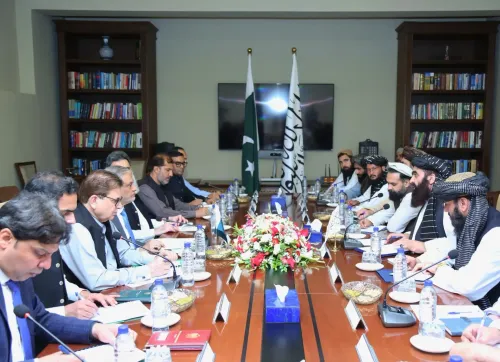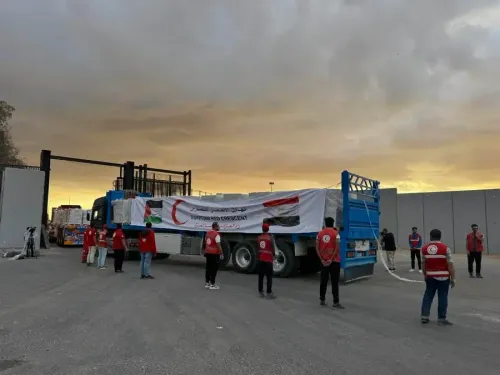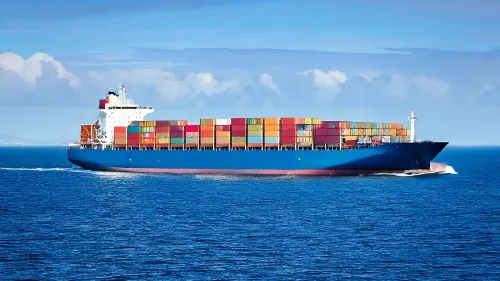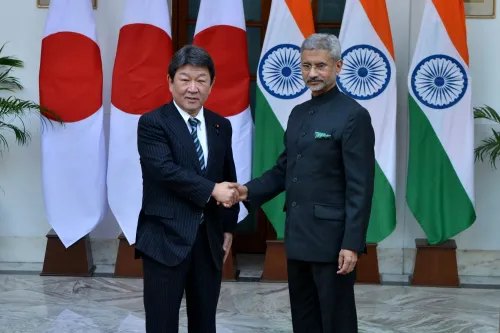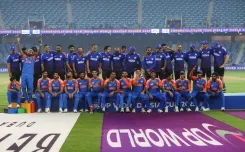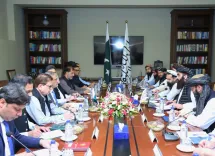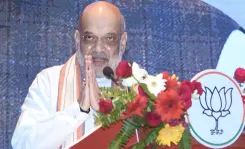How is India Strengthening Global Resilience Against Terrorism?
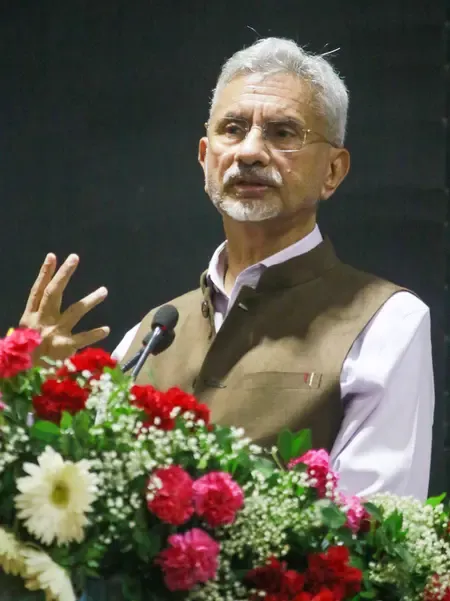
Synopsis
Key Takeaways
- India collaborates with 26 countries on counter-terrorism through Joint Working Groups.
- Active participation in multilateral organizations strengthens India's global position.
- India's commitment to compliance with FATF Recommendations showcases its dedication.
- Support for victims of terrorism highlights India's humanitarian approach.
- Investment in capacity-building enhances global counter-terrorism efforts.
New Delhi, July 12 (NationPress) India has been actively collaborating with partners to enhance counter-terrorism efforts through Joint Working Groups on Counter Terrorism (JWG-CT) with 26 nations. The latest annual report (2024) from the Ministry of External Affairs (MEA) emphasizes the nation’s strong commitment to fostering collective action against terrorism.
India is engaging with various regional and multilateral organizations, including BIMSTEC, G20, ASEAN Regional Forum, SCO, BRICS, EU, FATF, and the QUAD Forum on Counter Terrorism.
Meetings of the Joint Working Group on Counter Terrorism (JWG-CT) have taken place with the United States, Kazakhstan, France, European Union, United Kingdom, Japan, Australia, Indonesia, Saudi Arabia, and Russia.
India’s presence at the Shanghai Cooperation Organisation (SCO) included participation in the Regional Anti Terrorist Structure (RATS) Group of Legal Experts (GLE) meeting held in Beijing, China.
At the ASEAN level, India took part in the 11th ASEAN Senior Officials Meeting on Transnational Crime (SOMTC)+India Consultation in Vientiane, Laos.
The 9th Annual BRICS Counter Terrorism Working Group Plenary and associated Sub-Groups’ Meetings occurred in Moscow in July 2024, while India hosted the 8th Meeting of the BIMSTEC SubGroup focused on Preventing Illicit Trafficking in Narcotic Drugs and Psychotropic Substances in New Delhi.
On the multilateral front, India was involved in a regional workshop organized by UNODC in collaboration with the Sri Lankan government in Colombo to enhance rehabilitation and reintegration strategies.
The FATF Working Group meeting and Plenary in Singapore adopted India’s Mutual Evaluation Report, categorizing the nation under “regular follow-up,” showcasing its high compliance with FATF Recommendations.
India also attended the FATF Working Groups and Plenary meeting in October.
India participated in the Global Counter Terrorism Forum (GCTF) Trans-regional Group Meeting and the 23rd Coordinating Committee Meeting in Nairobi, and the 24th Coordinating Committee Meeting and Ministerial Meeting in New York in September 2024.
Additionally, India was present at the 40th Plenary meeting of the Eurasian Group on Money Laundering and Financing of Terrorism (EAG) in Bishkek, Kyrgyz Republic, while also engaging in the ‘Dushanbe Process High-Level Conference - the Kuwait Phase’ during the November meeting in Kuwait.
In Sydney, India was part of the QUAD Technical Exchange and Workshop on C-WMD Threats. The 2nd QUAD Counter Terrorism Working Group meeting and the 5th QUAD Table Top Exercise took place in Tokyo.
The fight against terrorism remains a key priority for India at the United Nations, where it has advocated for comprehensive multilateral action, capacity-building support for member states, and the effective implementation of UN CT-related sanctions to strengthen collective action against terrorism.
India has been instrumental in supporting the capacity-building initiatives of the UN Office of Counter Terrorism (UNOCT) and has called for increased autonomy of the office.
Furthermore, India has highlighted the need for more synergies between UNOCT and international forums like the FATF to promote and implement standards against terror financing, counter the misuse of new technologies for terrorist activities, and advocate for the ‘right to justice’ for victims of cross-border terrorism.
Enhanced collaboration among these forums will aid in the swift finalization and adoption of the Convention on Countering International Terrorism (CCIT), providing a legal definition of ‘International Terrorism.’
In 2024, India contributed $500,000 to the UN Trust Fund for Counter Terrorism and was active in the 23rd Coordination Committee meeting and the 14th Ministerial meeting of the Global Counter Terrorism Forum (GCTF).
India also attended the Ministerial meeting of the Group of Friends of Victims of Terrorism (GOFVOT) and participated in the periodic meetings of the Advisory Board to the UN Counter Terrorism Centre (UNCCT) chaired by Saudi Arabia.
In alignment with its commitments on counter-terrorism issues, India took part in the Global Conference on Victims of Terrorism held in Vittoria, Spain.

